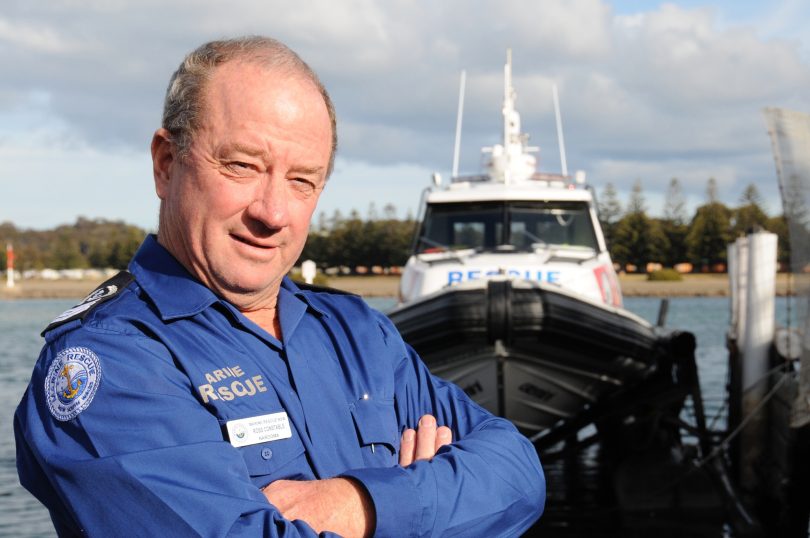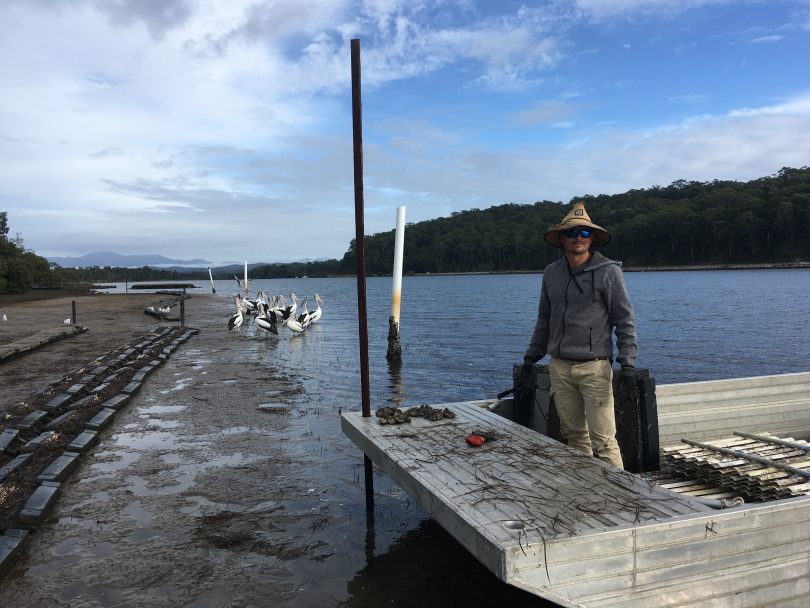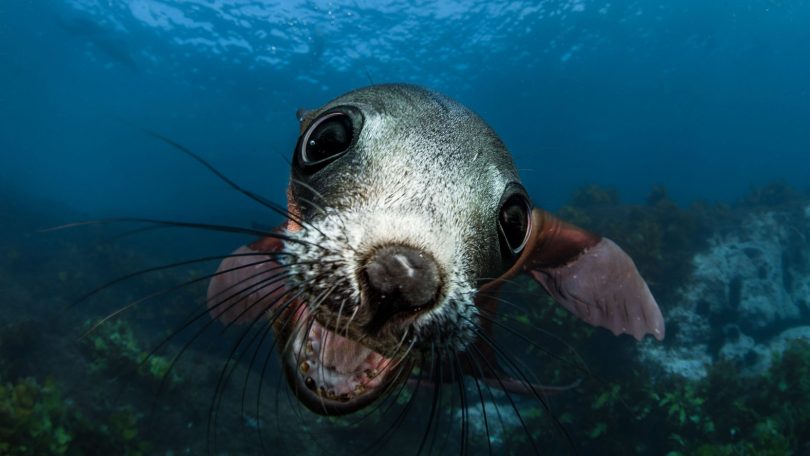
Ross Constable has resigned as Batemans Marine Park Advisory Committee’s maritime representative. Photo: Supplied.
A lack of consultation by the NSW Government with the Batemans Marine Park Advisory Committee has prompted two members to resign, while another has been sacked for sending a fiery email citing his dissatisfaction with the nomination of a member as chair who is in favour of abolishing no-take zones.
Former Montague Island Nature Reserve ranger and current Narooma Marine Rescue volunteer Ross Constable quit last week, while Narooma oyster farmer Brian Coxon resigned in 2020 in protest of the government’s decision to scrap six areas that were previously off-limits to fishing activities in the park.
“This committee was established by the state government to be the ‘voice for the local communities’ according to its own handbook,” said Mr Constable. “There was no formal consultation with the local community as far as I’m aware, and certainly not with the committee.”
Mr Coxon said he found out about the government’s decision from a press release and that it was a “waste of time” sitting on a committee that isn’t listened to.
Moruya oyster farmer Nicholas Thorne replaced Mr Coxon on the committee, but was sacked after his first meeting when Dr Philip Creagh nominated himself as chair.
“Philip said he was a former vet and interested in marine biology, but when I did a background check, I found Philip is a former recreational fishing representative and an opponent of no-take zones in the marine park,” said Mr Thorne. “I felt he was seriously misrepresenting himself.”
Dr Creagh has been quoted in the media as supporting the abolishment of the no-take zones and calling comments made by environmental groups in favour of the zones “greenwashing”.

Moruya oyster farmer Nicholas Thorne was sacked from the Batemans Marine Park Advisory Committee in 2020. Photo: Supplied.
The NSW Department of Primary Industries (DPI) told Mr Thorne his fiery email to Dr Creagh was defamatory and disrespectful, and therefore breached its code of conduct.
Mr Thorne sent an email to DPI director general Scott Hansen apologising and offering a retraction, but he was never reinstated to the committee.
The controversial decision to relax park rules to give recreational fishers more places to fish was made by NSW Minister for Agriculture Adam Marshall and Member for Bega Andrew Constance in December 2019.
Six areas previously off-limits were approved for activities, including catch-and-release recreational fishing, line fishing and spearfishing. They included Brou Lake South (catch-and-release recreational fishing); Montague Island South and East (recreational line fishing, spearfishing and diving for abalone, lobsters and other invertebrates); Clarks Bay-Freshwater Bay and Forsters Bay (recreational line fishing and spearfishing, but no use of nets or traps); and Nangudga Lake (recreational line fishing and prawning using a handheld scoop).
Environmentalists say the changes add stress to endangered fish, seals, sea birds and kelp forests.
The DPI is currently reviewing overall management plans in the park and Mr Thorne fears the committee is stacked against advising in favour of the no-take zones now that he, Mr Constable and Mr Coxon have left.
Both Mr Coxon and Mr Constable say at least some of the park should be protected if it’s to have a future.
“We have to lock up some of these places or there will be nothing left,” said Mr Coxon. “I grew up on the water and we used to think we can’t fish everything, but we can.”

Environmentalists say the abolishment of no-take zones adds stress on endangered fish, seals, sea birds and kelp forests. Photo: Save Batemans Sanctuaries.
Recreational fishers in favour of fishing in the previously protected zones argue the amount of fish they catch in the rezoned areas is minimal.
Mr Constable said he agrees, but added the marine park is also under pressure from climate change and pollution from the mainland.
“There are a lot of stressors and fishing is one,” he said.
“I’m not proposing we close the entire park to recreational fishing, but some of the park has to be protected where natural processes can occur. These areas constitute less than 20 per cent of the 850 square kilometres of the marine park, which I don’t think is much to ask.
“The question is: how much do recreational fisherman want?”







